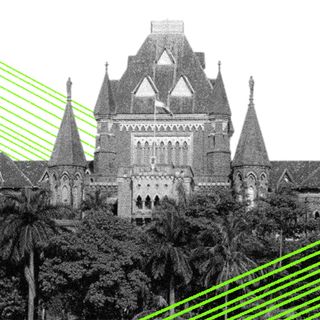An explosive report pokes one of the biggest holes yet in a police case against the activists jailed in the Bhima Koregaon case, finding one of the main bits of incriminating evidence — letters found on the laptop of one of the activists, Rona Wilson — was actually planted there by a third party using malware, the Washington Post reports.
While the U.S.-based digital forensics firm, Arsenal Consulting, who examined an electronic copy of Wilson’s laptop — at his lawyers’ request — did not name a perpetrator, it provides a new avenue for Wilson’s lawyers to challenge the prosecution’s case. The report has now been included in a petition in the High Court, in which Wilson’s lawyers are hoping for a dismissal of the case against him.
Wilson, and several other lawyers and activists including Anand Teltumbde, Varavara Rao, and Sudha Bharadwaj, had been targeted by the police in the wake of the 2018 violence at the annual Bhima Koregaon memorial. Police had identified them as having Maoist ties and as being involved in a plot to overthrow the government and assassinate Prime Minister Narendra Modi. Wilson and others were charged under the Unlawful Activities (Prevention) Act (UAPA) at the time, a law that we now know is increasingly invoked against activists who speak up against the government to arrest and imprison them indefinitely without trial.
Related on The Swaddle:
The Sneaky New Way to Spy on Unsuspecting Internet Users
The police’s “primary evidence in the charge sheet it filed in the Bhima Koregaon case,” according to The Caravan, is the data retrieved from Wilson’s hard drive and that of another arrested activist-lawyer, Surendra Gadling. The latest report finds the hard drive of Wilson’s laptop had been tampered with over a two-year span from when his device was first compromised to when the last of the 10 letters was deposited in his laptop in a hidden folder. The cyberattacker had, in 2016, sent an unassuming email pretending to be an activist Wilson knew well, in which they urged Wilson to click on a link to view some statement from a civil rights group; the link, instead, when clicked gave a hacker remote access to Wilson’s laptop.
Similar attempts had been made, the report says, to trap the activists arrested alongside Wilson. A 2019 investigation by The Wire, in partnership with Amnesty International’s digital team, also found similar digital attacks targeting activists openly helping and supporting the accused in the Bhima Koregaon case. The Wire report found “these emails were specially crafted to bait journalists or activists,” and were designed to give the cyberattacker “full visibility and control of your computer: access to all your files, your camera, it can take screenshots, and record everything you type on your keyboard.”
The current report adds yet another confirmation to investigations Indian publications have already carried out; by 2020, The Caravan had already pointed out several technical anomalies in the digital evidence gathered by the police against the Bhima Koregaon accused, even sounding the alarm about the presence of malware in Wilson’s hard drive and the potential illegitimacy of the police’s evidence.
Despite plenty of evidence to contradict the prosecution’s case, the Bhima Koregaon accused have been denied bail time again, suffering imprisonment during the Covid19 pandemic. Their case is currently under the jurisdiction of the central government, overseen by the Home Ministry-governed National Investigation Agency. Whether or not this latest confirmation of evidence tampering can achieve what past investigations and revelations could not, remains to be seen.




